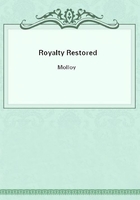
第22章 CHAPTER IV.(1)
The King's character.--His proverbial grace.--He tells a story well.--"A warmth and sweetness of the blood."--Beautiful Barbara Palmer.--Her intrigue with my Lord Chesterfield.--James, Duke of York.--His early days.--Escape from St. James's.--Fights in the service of France.--Marriage with Anne Hyde.--Sensation at Court.--The Duke of Gloucester's death.--The Princess of Orange.
--Schemes against the Duke of York's peace.--The "lewd informer."--Anne Hyde is acknowledged Duchess of York.
Whilst the kingdom was absorbed by movements consequent on its change of government, the court was no less engrossed by incidents relative to the career it had begun. In the annals of court life there are no pages more interesting than those dealing with Charles II, and his friends; in the history of kings there is no more remarkable figure than that of the merry monarch himself.
Returning to rule over a nation which, during his absence, had been distracted by civil strife, King Charles, young in years, brave in deeds, and surrounded by that halo of romance which misfortune lends its victims, entirely. gained the hearts of his subjects. Nature had endowed him with gifts adapted to display qualities that fascinated, and fitted to hide blemishes which repelled. On the one hand his expressive features and shapely figure went far towards creating a charm which his personal grace and courtesy of manner completed; on the other, his delicate tact screened the heartlessness of his sensualism, whilst his surface sympathies hid the barrenness of his cynicism.
With the coolness and courage he had shown in danger, the shrewdness and wit he continually evinced, and the varied capacities he certainly possessed, Charles II. might have made his reign illustrious, had not his love of ease and detestation of business rendered him indifferent to all things so long as he was free to follow his desires. But these faults, which became grievous in the eyes of his subjects, commended him to the hearts of his courtiers, the common purpose of whose lives was pursuit of pleasure. Never was sovereign more gracious to those who came in contact with him, or less ceremonious with his friends; whilst abroad he had lived with his little band of courtiers more as a companion than a king. The bond of exile had drawn them close together; an equal fortune had gone far towards obliterating distinctions of royalty; and custom had so fitted the monarch and his friends to familiarity, that on his return to England neither he nor they laid aside a mutual freedom of treatment which by degrees extended itself throughout the court. For all that, "he was master," as Welwood says, "of something in his person and aspect that commanded both love and admiration at once."Among his many gifts was that of telling a story well--a rare one 'tis true in all ages. Never was he better pleased than when, surrounded by a group of gossips, he narrated some anecdote of which he was the hero; and, though his tales were more than twice told, they were far from tedious; inasmuch as, being set forth with brighter flashes of wit and keener touches of irony, they were ever pleasant to hear. His conversation was of a like complexion to his tales, pointed, shrewd, and humorous;frequently--as became the manner of the times--straying far afield of propriety, and taking liberties of expression of which nice judgments could not approve. But indeed his majesty's speech was not more free than his conduct was licentious. He could not think, he gravely told Bishop Burnet, "God would make a man miserable for taking a little pleasure out of the way."Accordingly he followed the free bent of his desires, and his whole life was soon devoted to voluptuousness; a vice which an ingenious courtier obligingly describes as a "warmth and sweetness of the blood that would not be confined in the communicating itself--an overflowing of good nature, of which he had such a stream that it would not be restrained within the banks of a crabbed and unsociable virtue."The ease and freedom of his continental life had no doubt fostered this lamentable depravity; for his misfortunes as an exiled king by no means prevented him following his inclinations as an ardent lover. Accordingly, his intrigues at that time were numerous, as may be judged from the fact of Lady Byron being described as "his seventeenth mistress abroad." The offspring of one of his continental mistresses was destined to plunge the English nation into civil warfare, and to suffer a traitor's death on Tower Hill in the succeeding reign.
"The profligacy which Charles practised abroad not being discontinued at home, he resumed in England an intrigue commenced at Brussels a short time before the restoration. The object of this amour was the beautiful Barbara Palmer, afterwards, by reason of her lack of virtue, raised to the peerage under the titles of Countess of Castlemaine, and Duchess of Cleveland.
This lady, who became a most prominent figure in the court of the merry monarch, was daughter of William, second Viscount Grandison, a brave gentleman and a loyal, who had early in life fallen in the civil war whilst fighting for his king. He is described as having, among other gifts, "a faultless person," a boon, which descended to his only child, the bewitching Barbara.